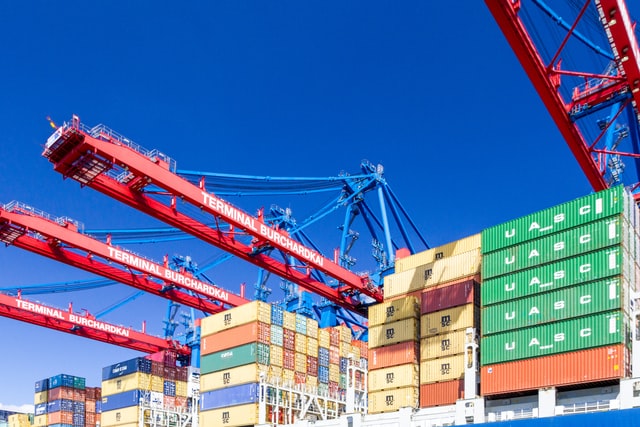
Hey there, fellow entrepreneurs! Today, we’re diving into one of the most critical aspects of running a successful business: selecting the right materials handling equipment. Whether you’re running a bustling warehouse or a bustling manufacturing plant, choosing the perfect equipment can significantly impact your operational efficiency. So, let’s roll up our sleeves and explore how to make the best choice for your specific needs.
Understanding Your Business Requirements
To kick things off, it’s essential to take a step back and truly understand the needs of your business. What materials do you handle? What are the unique challenges you face in your operations? By taking the time to answer these questions, you’ll be better equipped to narrow down your options and find material handling equipment that aligns perfectly with your requirements.
Understanding your business requirements is the foundation of selecting the right materials handling equipment. Without a clear understanding of your needs, it’s easy to get overwhelmed by the myriad of options available in the market. Take the time to assess your operations thoroughly, considering factors such as the types of materials you handle, the volume of materials processed, and any specific challenges or constraints you face.
Exploring Different Types of Materials Handling Equipment
Now, let’s talk about the tools of the trade. From forklifts to conveyor belts, there’s a wide range of equipment available to handle materials. Each type comes with its own set of advantages and disadvantages, so it’s crucial to weigh your options carefully and choose the one that best suits your needs.
Exploring different types of materials handling equipment is like embarking on an adventure – there’s a world of possibilities waiting to be discovered. Take the time to research and familiarize yourself with the various options available, considering factors such as functionality, versatility, and cost-effectiveness. By exploring different types of equipment, you’ll be better equipped to make an informed decision that aligns with your business needs.
Key Considerations for Selection
When it comes to selecting materials handling equipment, there are several essential factors to consider. Budgetary constraints, space limitations, and safety regulations are just a few examples. By keeping these considerations top of mind, you can ensure that you make a decision that is both practical and compliant with industry standards.
Key considerations for selection are the guiding principles that will help you navigate the complex landscape of materials handling equipment. From budget constraints to safety regulations, these factors play a crucial role in determining the suitability of different equipment options for your business. By carefully considering these key factors, you can narrow down your choices and focus on selecting equipment that meets your specific needs and requirements.
Enhancing Efficiency and Productivity
Let’s face it – we’re all looking for ways to boost productivity and get more done in less time. The right materials handling equipment can play a significant role in achieving this goal. Look for equipment that integrates seamlessly with your existing processes and workflows, helping you streamline operations and maximize efficiency.
Enhancing efficiency and productivity is the holy grail of materials handling equipment selection. After all, what good is equipment if it doesn’t help you get the job done faster and more efficiently? Look for features such as automation, ergonomic design, and advanced technology integration that can help you optimize your operations and stay ahead of the competition.
Customization Options for Tailored Solutions
Every business is unique, and your materials handling equipment should reflect that. Seek out suppliers who offer customization options, allowing you to tailor your equipment to meet your specific needs. Whether it’s adjusting load capacities or adding specialized features, customization can make a world of difference in optimizing your operations.
Customization options for tailored solutions are like a breath of fresh air in the world of materials handling equipment. No two businesses are alike, so why settle for one-size-fits-all solutions? Look for suppliers who understand the unique challenges and requirements of your business and are willing to work with you to develop customized solutions that address your specific needs.
Prioritizing Quality and Durability
Quality and durability are non-negotiable when it comes to materials handling equipment. While it may be tempting to opt for cheaper options, investing in high-quality equipment will pay off in the long run. After all, you don’t want to deal with frequent breakdowns and repairs that can disrupt your operations and cost you valuable time and money.
Prioritizing quality and durability is like laying a solid foundation for your business. It may not be the most glamorous aspect of equipment selection, but it’s undoubtedly one of the most important. Look for equipment that is built to last, with durable materials and robust construction that can withstand the rigors of daily use. By investing in quality equipment upfront, you can avoid the headaches and expenses associated with frequent repairs and replacements down the line.
Streamlining Maintenance Processes
Maintenance is a fact of life when it comes to equipment, but that doesn’t mean it has to be a hassle. Look for equipment that is easy to maintain and requires minimal upkeep. By choosing equipment with streamlined maintenance processes, you can reduce downtime and keep your operations running smoothly.
Streamlining maintenance processes is like giving yourself the gift of time – time that you can spend focusing on growing your business instead of dealing with equipment breakdowns and repairs. Look for equipment that is designed with maintenance in mind, with features such as easy access to components, intuitive diagnostic systems, and readily available spare parts. By simplifying maintenance processes, you can minimize downtime and ensure that your operations run smoothly day in and day out.
Ensuring Adequate Training and Support
Proper training is essential for the safe and efficient operation of materials handling equipment. Make sure to choose suppliers who offer comprehensive training programs for your staff, ensuring that they have the knowledge and skills to operate the equipment safely and effectively. Additionally, look for suppliers who provide ongoing support and assistance to address any issues that may arise.
Ensuring adequate training and support is like having a safety net for your business. No matter how advanced your equipment may be, it’s only as effective as the people who operate it. Look for suppliers who understand the importance of proper training and are committed to providing your staff with the knowledge and skills they need to operate the equipment safely and effectively. Additionally, choose suppliers who offer ongoing support and assistance to address any questions or issues that may arise during operation. By investing in proper training and support, you can ensure that your equipment operates smoothly and safely, protecting both your employees and your bottom line.
Considering Environmental Impact
In today’s environmentally conscious world, it’s crucial to consider the environmental impact of your equipment choices. Look for equipment that is energy-efficient and incorporates sustainable practices in its design and operation. By prioritizing environmentally friendly options, you can reduce your carbon footprint and contribute to a healthier planet.
Considering the environmental impact of your equipment choices is like doing your part to protect the planet for future generations. In today’s increasingly eco-conscious world, businesses are under pressure to minimize their environmental footprint and adopt sustainable practices. Look for materials handling equipment that is designed with energy efficiency and sustainability in mind, with features such as low energy consumption, minimal emissions, and recyclable materials. By choosing environmentally friendly options, you can reduce your carbon footprint and demonstrate your commitment to corporate social responsibility.
Planning for Future Growth and Expansion
When selecting materials handling equipment, it’s essential to think about the future. Choose equipment that can grow and evolve with your business, allowing you to adapt to changing needs and scale your operations as needed. Investing in flexible, scalable solutions will ensure that your equipment continues to meet your needs long into the future.
Planning for future growth and expansion is like laying the groundwork for success. As your business evolves and expands, your materials handling needs will inevitably change. Look for equipment that is flexible and scalable, with features that allow you to adapt to changing requirements and accommodate future growth. By investing in equipment that can grow and evolve with your business, you can future-proof your operations and position yourself for long-term success.
Researching Brands and Suppliers
With so many options available, it’s crucial to do your homework before making a decision. Research different brands and suppliers, paying close attention to factors such as reputation, reliability, and customer reviews. By choosing reputable suppliers, you can have confidence in the quality and performance of your equipment.
Researching brands and suppliers is like laying the groundwork for a successful partnership. With so many options available in the market, it’s easy to feel overwhelmed by the sheer number of choices. Take the time to research different brands and suppliers, paying close attention to factors such as reputation, reliability, and customer reviews. Look for suppliers who have a proven track record of delivering high-quality products and excellent customer service. By choosing reputable suppliers, you can have confidence in the quality and performance of your equipment, knowing that you’re partnering with a trusted provider who will support you every step of the way.
Listening to Customer Feedback
Finally, don’t forget to listen to what your fellow business owners have to say. Customer reviews and feedback can provide valuable insights into the performance and reliability of different equipment options. Take the time to read reviews and learn from the experiences of others before making your decision.
Listening to customer feedback is like tapping into a goldmine of knowledge and experience. Your fellow business owners have been where you are now and can offer valuable insights and advice based on their own experiences. Take the time to read reviews and testimonials, paying close attention to both positive and negative feedback. By learning from the experiences of others, you can gain valuable insights into the performance and reliability of different equipment options and make a more informed decision.
Making an Informed Decision
After considering all of these factors, it’s time to make a decision. Trust your instincts, do your research, and don’t be afraid to ask for help if you need it. By taking the time to select the right materials handling equipment for your business, you can set yourself up for success and ensure that your operations run smoothly for years to come.
Making an informed decision is like charting a course for success. With so many factors to consider, it’s easy to feel overwhelmed by the decision-making process. But by taking the time to weigh your options carefully, do your research, and listen to your instincts, you can make a decision that is both practical and informed. Trust yourself, trust your judgment, and don’t be afraid to ask for help if you need it. By selecting the right materials handling equipment for your business, you can set yourself up for success and ensure that your operations run smoothly for years to come.
In Conclusion
Selecting the right materials handling equipment is a critical decision that can have a significant impact on the success of your business. By understanding your unique needs, exploring your options carefully, and considering factors such as efficiency, durability, and environmental impact, you can make an informed decision that will benefit your business for years to come.
In conclusion, choosing the right materials handling equipment is like laying the foundation for a successful business. By taking the time to understand your needs, explore your options, and make an informed decision, you can set yourself up for success and ensure that your operations run smoothly for years to come. So roll up your sleeves, do your homework, and get ready to take your business to the next level!


